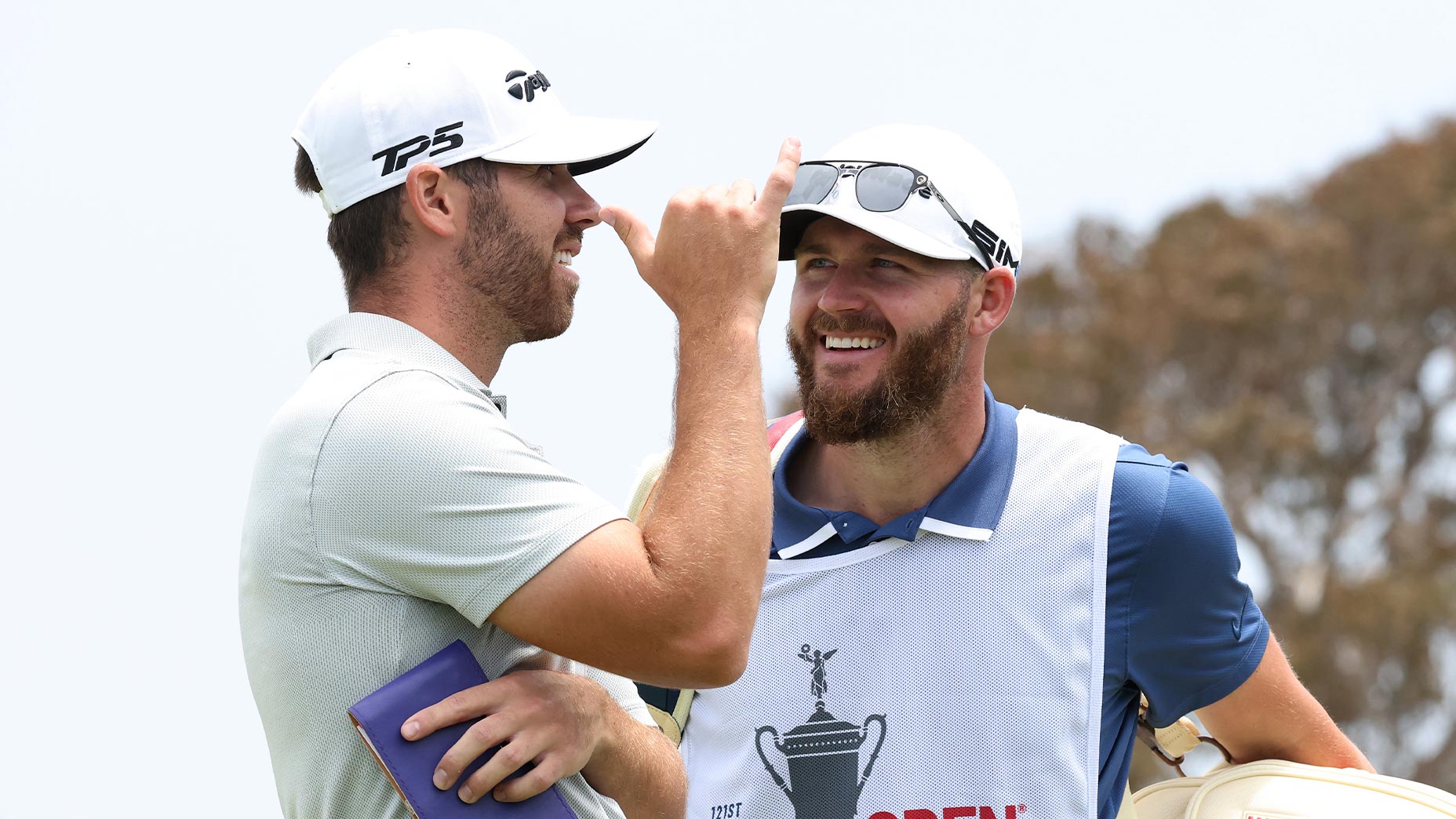Matt Wolff returned to the conversation for the first time in a long while on Thursday at the U.S. Open, and there was plenty to discuss.
First up: his performance.
In a word, it was weird.
On the strangest of opening rounds, the 22-year-old vaulted himself into contention at the U.S. Open. After a marine layer-delayed start, Wolff shot a one-under 70 that consisted of only five pars, three of which came in his final four holes. With eight birdies, three bogeys, and two double bogeys to his name, Wolff cycled between the phrases “solo leader” and “off the leaderboard entirely” for a healthy portion of the afternoon.
He finished the day tied for seventh, three strokes off Russell Henley’s lead.
“A lot of good, a lot of bad. I started off really strong and made quite a few putts at the start of my round and stumbled a little bit. But it’s the U.S. Open, everyone’s going to stumble,” Wolff said after the round. “I think that I would be very impressed if someone went 72 holes without a double bogey, even just a double bogey, because that would be really good.”
The next discussion topic: his return.
Thursday at the national championship was his first competitive round in more than two months. As GOLF’s Dylan Dethier reported Wednesday, Wolff hasn’t been seen around professional golf since his wrong scorecard DQ from the Masters in April.
His return comes just in time for the so-called toughest test in golf, which would appear an ill-fated decision for a player eight weeks removed from competitive reps.
“Well I figure if I shoot 78 there’s going to be a lot of people that do it as well, so I won’t stand out quite as much,” he said, flashing a grin. “But, I mean, no, I just felt like this was a good time to be back, this course sets up really good for me. So it was not an easy decision to come back at this time, but I thought it was the best thing.”
On Thursday, Wolff revealed that he went almost a month after the Masters without swinging a golf club, a pause caused not by injury, but burnout.
“I think I just put too much pressure on myself,” he said. “It was a hard decision because I’m so new on Tour and it’s my first or second year and I didn’t want to walk away. I don’t even think I could, to be honest, and then when I finally started to get to a bad enough spot, honestly I was like, you know what, I need some time.”
Wolff said he struggled dealing with the pressure he faced to reach his expectations, and with controlling his emotions when he did not. His on-course performance, he said, bled into his life off of it, and in Augusta, the situation reached a breaking point.
“Obviously it’s hard, I come back from the golf course and I’m in a just s—-y mood and [Kim Lloyd, Wolff’s girlfriend] is just trying to put a smile on my face and I don’t want to deal with it,” he said. “It’s been hard for her, hard for me, hard for everyone around me.”
And then there was the conversation of his health. Of course, Wolff is far from the only young star athlete struggling to adapt to the pressures of the limelight. Naomi Osaka, tennis’ prodigious young talent, became the focal point of the French Open earlier this month for her decision to skip media availability on account of her anxiety. She subsequently withdrew from the event, and coincidentally announced Thursday her intention to skip Wimbledon in order to secure more time for her health.
Wolff pointed toward Osaka and the growing conversation around emotional health in sports in explaining the reasoning behind his decision to step away.
“Mental health is a really big problem, and we [professional athletes] play a lot of golf and/or play a lot of games,” he said. “Any professional athlete has to deal with a lot more stress and pressure than most people, and it just kind of got to me. But I’ve been working on it, I’ve been learning and I think that’s all I can do.”
Finally, the conversation returned to Thursday, but Wolff’s mind was far from the round he’d just completed. It’s unusual for a professional golfer to speak so candidly about mental health, wellness, and emotion. But there was Wolff at the podium, a twenty-something contender at one of golf’s major championships, deep in thought about his own fledgling pursuit of happiness.
“I think the biggest thing right now that I’m trying to do is enjoy myself again and just take care of myself really,” he said. “I mean, the strength that everyone has on my team and the, not only the strength, but the confidence that they have in me is, I couldn’t even ask for a better team.”
At least seven players will exit the opening round at the U.S. Open with a score better than Matt Wolff, and yet none will have more to say.
“I’m only trying to have positive thoughts in my head and be positive,” he said. “Kudos to pretty much every professional athlete out there. I haven’t been in this world for a long time, but man, it’s f—–g hard.”
